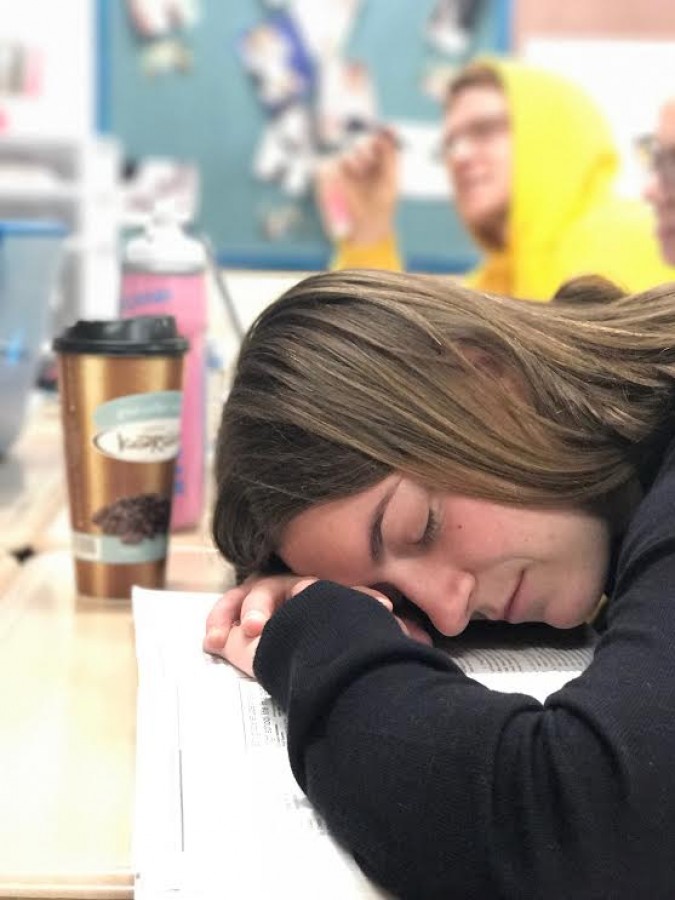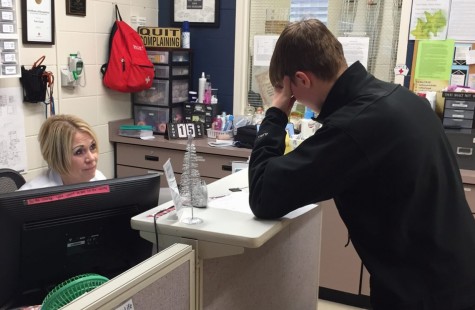The sleep dilemma
Everyone knows sleep is important, so why are students getting so little of it? Pam Cinadr says high school students should be getting between 8 to 10 hours of sleep, but there’s a study that shows that only 15% of students get 8 1/2 hours of sleep a night. Cinadr wants to remind students, “A brain that is hungry for sleep will get it, even when you don’t expect it.”
There are many consequences to not getting enough sleep. Cinadr describes sleep as, “food for the brain.” In the same way that students need proper diet and exercise to succeed in school, they also need sleep. Not getting enough sleep can, “limit your ability to learn, listen, concentrate, and solve problems.” according to Cinadr. Also, a lack of sleep can lead to overeating of unhealthy foods which leads to weight gain. A big concern that Cinadr expressed was what happens when people drive when they are drowsy. She said, “Falling asleep at the wheel causes more than 100,000 car crashes every year.” Sleep is important and should be made a priority for everyone.
Some may be wondering, how do you get a better sleep? Many try to go to bed on time, but nothing seems to work. Gracie Wilson, senior, said, “Most nights I don’t end up falling asleep until at least 12, regardless of how much homework I have. Sometimes I even stay up until three just watching Netflix.” The use of technology before bed, is something that Cinadr strongly advises against. Cinadr also stresses the importance of a schedule. “A consistent sleep schedule will help you feel less tired since it allows your body to get in sync with its natural patterns.” Some suggestions are to take a bath or shower before bed, this will also save you time in the morning, or read a book. Doing the same things every night will signal to your body that it’s almost time for bed.
A big factor in someone’s sleeping habits is their diet. Cinadr said, “No pills, vitamins, or energy drinks can replace a good night’s sleep.” In the same way that people watch what they eat when going to work out, they need to be careful of what they’re eating in order to sleep. Cinadr recommends avoiding caffeine after as early as 4 p.m. Also, Cinadr wants to remind students that chocolate, coffee, and tea, also contains caffeine. Many students and adults enjoy to have a “midnight snack” from time to time, before they go to bed. Eating something small shouldn’t impact anyone’s sleep, but it’s important not to eat too much or your body will have trouble relaxing. One snack Cinadr suggests is, “A small bowl of non-sugary cereal with milk.” Milk contains tryptophan which Cinadr says, “can enhance sleep.”
Hannah Humes, senior, said, “I am always tired and want to take naps, but I’m too nervous I won’t be able to sleep at night.” Many other students have this same concern. Students will be relieved to hear that Cinadr said, “Naps can help pick you up, and work more efficiently.” They key is to keep your naps short, no more than 15-20 minutes. Cinadr says, “The best time to nap is right after school, if your busy schedule allows for it.”


